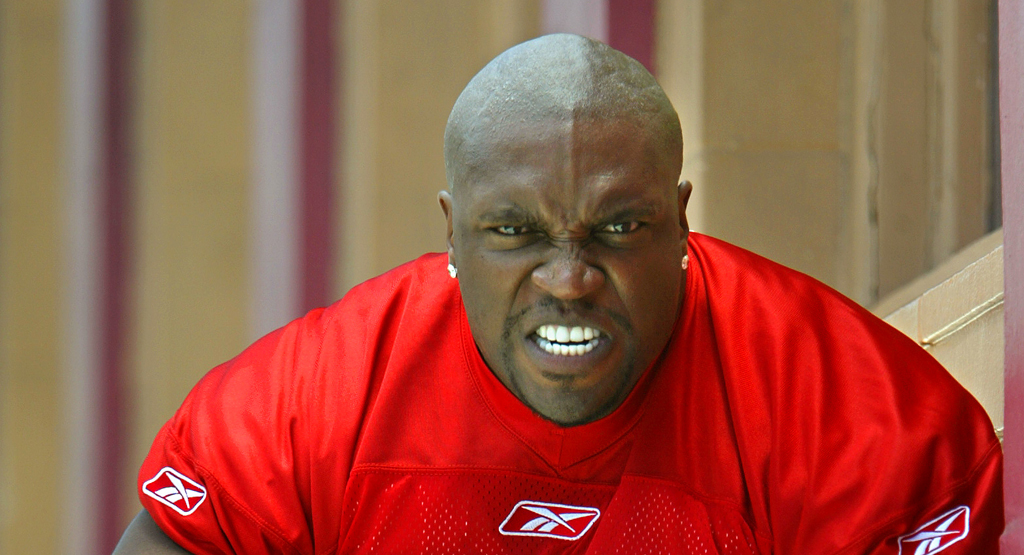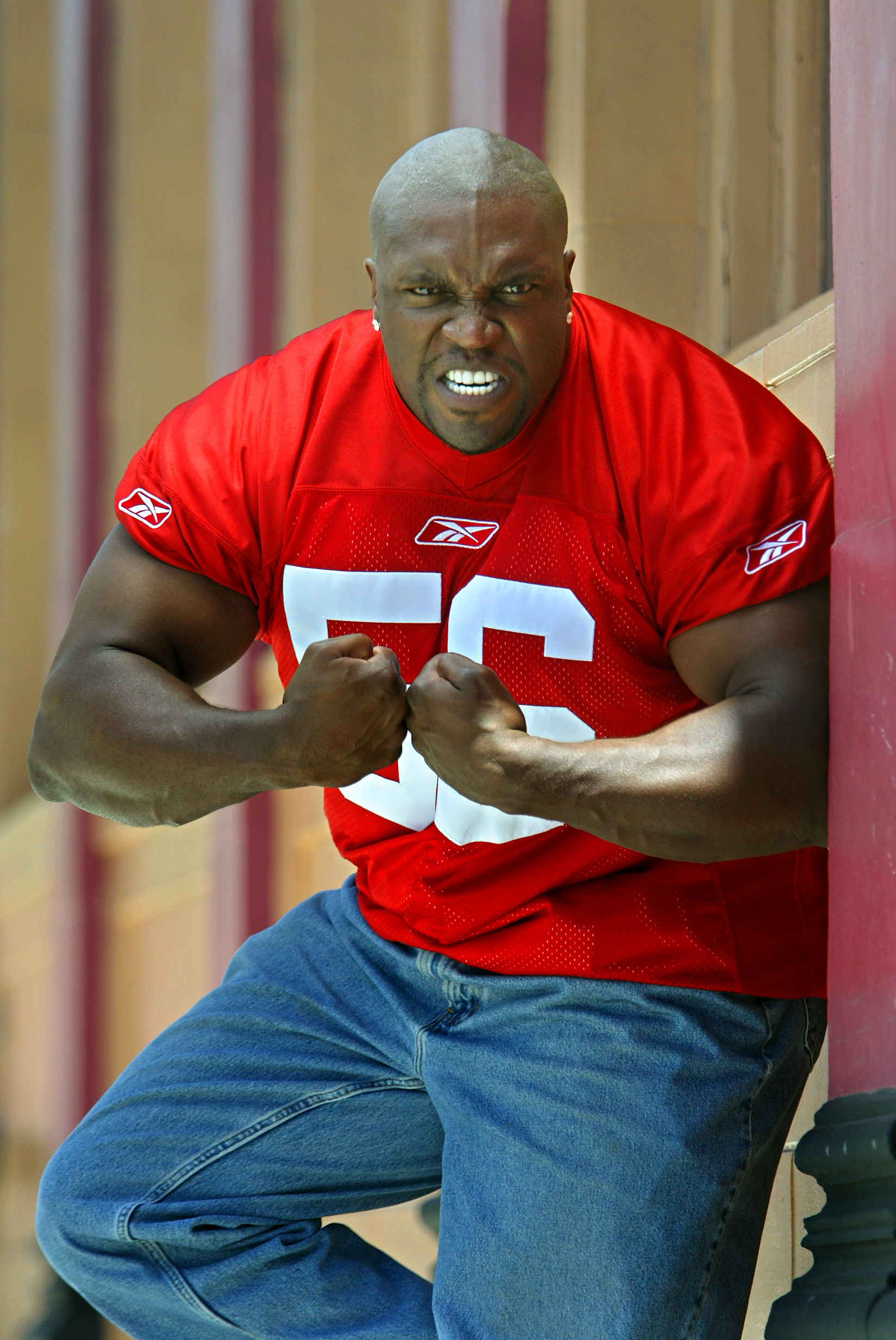NFL
Reebok Sacked Linebacker Terry Tate for Being Too Good at His Job

Terry Tate was the antithesis of the Peter Principle. The little-known linebacker didn’t rise through the ranks to eventually find his level of incompetence. Instead, he quickly became so good at what he did that Reebok had to let him go.
Super Bowl XXXVII between the Tampa Bay Buccaneers and the Oakland Raiders proved to be both the high point of his career and the reason he would have to be sacked soon afterward.
Terry Tate: Office Linebacker
Football fans coming up on their 50th birthday remember how the commercials were better than the Super Bowl itself for most of their teen years. Sure, Scott Norwood kicked one wide right to all but end a genuine nail-biter between the New York Giants and Buffalo Bills, but just about every other NFL Championship Game from 1984-95 was a snoozefest.
The tide turned in January 1996 as Super Bowl XXX began a long run of mostly close, entertaining contests to wrap up the NFL season. With perhaps two exceptions, the next 20 Super Bowls lived up to the hype, and one of the clunkers was saved by one commercial in particular — Reebok introducing the world to Terry Tate: Office Linebacker.
The Terry Tate ad campaign was built around the fictional linebacker played by Lester Speight, hired to improve the efficiency of a corporate office. He did it by brute force – literally running down and tackling Felcher and Sons company employees for transgressions such as playing Solitaire on their desktop computer or failing to start a new pot after pouring the last cup of coffee.
The ad campaign that began in 2002 was inspired by a short film pilot shot in 2000. The minute-long commercial shown as the Tampa Bay Buccaneers were thrashing the Oakland Raiders, 48-21, was an instant hit with TV viewers.
There was just one problem …
Viewers loved Terry Tate, but not Reebok
RELATED: Football’s First Family Takes to TV for Funny Commercial
Reebok spent millions on a series of Terry Tate commercials in 2002 with memorable banter including, “’Cuz when it’s game time, it’s pain time” ahead of the Super Bowl that made the character an overnight sensation. But even as the spots remained water-cooler fodder in the days after Super Bowl XXXVII, Reebok founder Joseph Foster was making the decision to end the campaign.
The problem? Viewers remembered the commercial and adored actor Lester Speight, but within even just a few minutes after watching, they had no recollection that it was an advertisement for Reebok. In short, the writing and acting were better than the branding.
Consequently, Reebok was not gaining the brand awareness that should have been translating into increased sales for athletic shoes and apparel. The anticipated big increase in store traffic never materialized. Reebok had won the battle for eyeballs and lost the war for consumer dollars.
As a marketing blog phrased it:
“If the consumer is not left with a sense of who you are and what you do, you’ve failed. If it has not spiked a sense of interest in your company, even if it’s small, you’ve failed. If the advertisement has not compelled them to try your product or want to try it, you have failed!”
Actor Lester Speight has a football background

RELATED: Which Famous NFL Quarterback Once Did a Pantyhose Commercial?
The actor portraying Terry Tate, the so-called office linebacker, had a legitimate sports background that included a short-lived bid to play professional football.
Lester Speight, now 56, played linebacker for Morgan State University from 1981-84 and had a successful tryout with the Baltimore Stars of the USFL only to see the league fold before he could start his two-year contract.
Speight followed that with a wrestling career under the nom de plume of Rasta the Voodoo Man. He gave up the wrestling career in 1997 to pursue acting, picking up a string of small movie roles including in Any Given Sunday and Cradle 2 the Grave and picking up television appearances as well.
He reprised the Terry Tate role in 2008 and 2016 as part of campaigns to promote voter registration.











